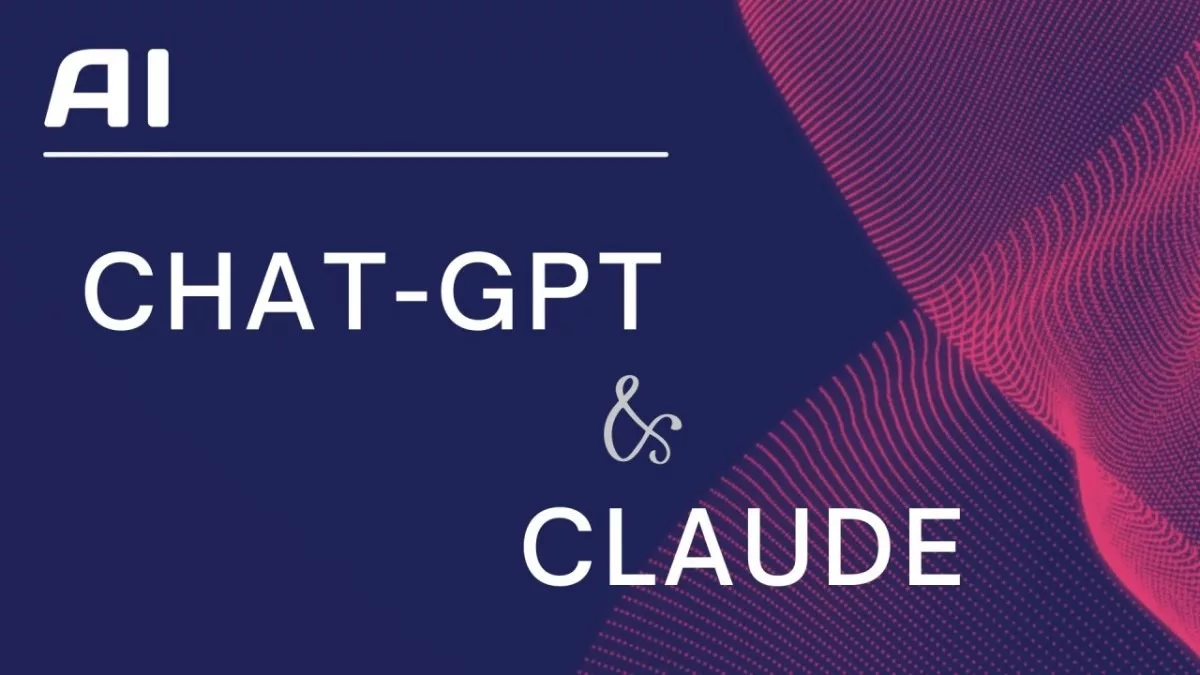Anthropic Claud and ChatGPT represent milestones in the evolution of conversational AI. Anthropic Claud's focus on context retention and nuanced understanding complements ChatGPT's versatility in generating text across various domains. As these technologies continue to advance, their combined strengths promise a future where AI-driven conversations are more natural, insightful, and personalised.

anthropic claud vs chatgpt
In the rapidly evolving landscape of artificial intelligence, conversational models play a pivotal role in shaping human-computer interaction. Two prominent contenders in this domain are Anthropic Claud and ChatGPT. Here, our aim is to provide a comprehensive comparison between these two models, highlighting their key features, strengths, and potential applications.
Must Read: Q-Star the secret AI project by Sam Altman: Is this the reason behind OpenAI CEO Ousted
Anthropic Claud: Developed by Anthropic, Claud employs a sophisticated architecture that integrates advanced natural language processing techniques with a focus on context-aware responses.
ChatGPT: Developed by OpenAI, ChatGPT is based on the GPT (Generative Pre-trained Transformer) architecture, renowned for its ability to generate coherent and contextually relevant text based on input prompts.
Anthropic Claud: Its training dataset is meticulously curated, drawing from diverse sources to enhance its understanding of contextual nuances and diverse topics.
ChatGPT: Trained on a vast corpus of internet text, ChatGPT is designed to exhibit a broad spectrum of knowledge, but it may occasionally produce biased or inaccurate information.
Anthropic Claud: Known for its nuanced grasp of context, Anthropic Claud excels in maintaining coherent and relevant conversations over extended interactions.
ChatGPT: While proficient in understanding context, ChatGPT may struggle with prolonged conversations and occasionally lose track of context, leading to less coherent responses.
Anthropic Claud offers a user-friendly interface with customizable options, providing a seamless and engaging experience for users.
ChatGPT: Interfaces may vary based on platform implementation, but generally offer a straightforward user experience with a focus on simplicity.
Anthropic Claud emphasizes ethical AI practices, prioritizing responsible use and minimizing biases in responses.
ChatGPT: OpenAI has implemented safety mitigations, but like any large language model, it may exhibit biases and should be used with caution.
Anthropic Claud: Suited for applications requiring nuanced and contextually aware conversations, such as virtual assistants and customer support bots.
ChatGPT: Versatile and applicable across a range of use cases, from content generation and creative writing to programming assistance.
Anthropic Claud and ChatGPT stand as formidable contenders in the conversational AI landscape, each with its unique strengths and considerations. The choice between the two ultimately depends on the specific requirements of the application and the desired user experience. As the field continues to evolve, these models represent the forefront of AI-driven conversational capabilities, pushing the boundaries of what is possible in human-computer interaction.
Also Read: Who are the OpenAI’s New Board Members? Check the New vs Old List Here!
This post was last modified on November 25, 2023 9:30 am
Google is launching The Android Show: I/O Edition, featuring Android ecosystem president Sameer Samat, to…
The top 11 generative AI companies in the world are listed below. These companies have…
Google has integrated Veo 2 video generation into the Gemini app for Advanced subscribers, enabling…
Perplexity's iOS app now makes its conversational AI voice assistant compatible with Apple devices, enabling…
Bhavish Aggarwal is in talks to raise $300 million for his AI company, Krutrim AI…
The Beijing Humanoid Robot Innovation Center won the Yizhuang Half-Marathon with the "Tiangong Ultra," a…